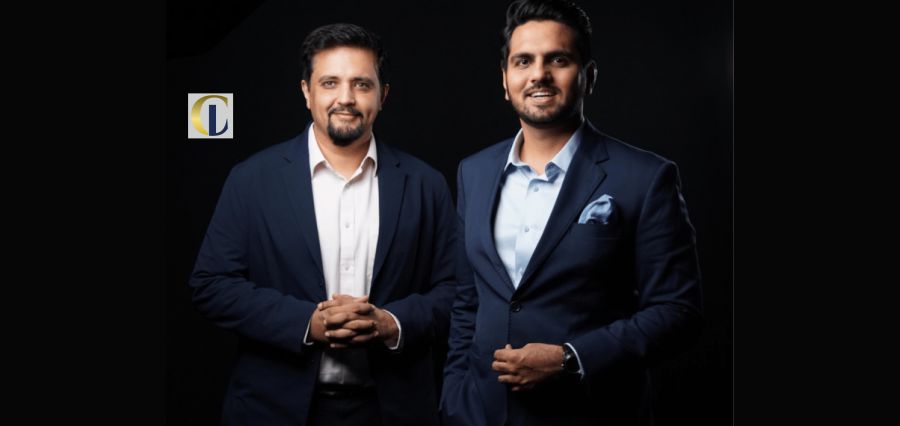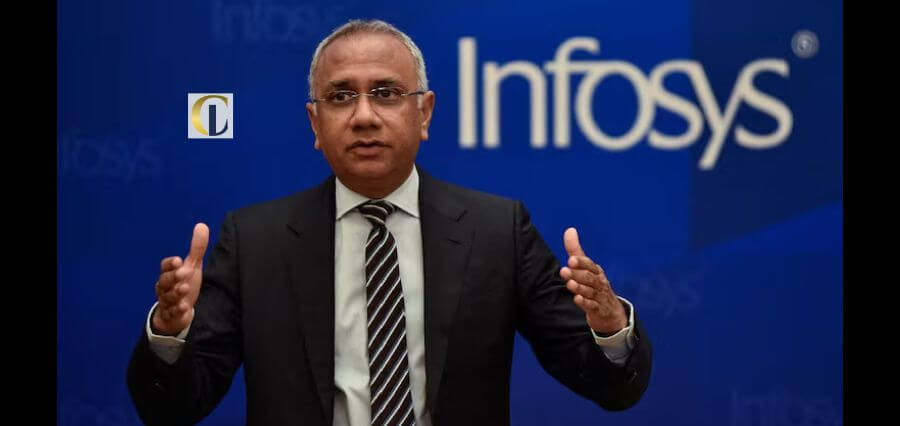For a resilient spirit, challenges do not matter. Women, being the eternally buoyant force of universal energy, giving up is never an option. They take life’s challenges head-on and thrive amidst turbulence with their inborn multitalented persona and resolute willpower.
At a point in her life, Manju Mastakar was facing an uncertain future. From the day she began working for another company, more than earning a salary, her compassionate heart believed in helping her clients secure themselves financially.
Devoted to her commitment, when the biggest challenge came her way, Manju took a leap of faith. She dived into entrepreneurship with only one mission – to help people secure their futures financially. Thus, Armstrong Capital & Financial Services Pvt. Ltd. was born, an investment management firm providing professional insights and strategic advice on all financial needs to individuals and corporations.
According to Manju, every individual has a different risk-taking appetite and financial goals, both long-term and short-term. “As Wealth Managers, we aim to provide customized financial solutions to our clients that best meet their needs. We manage a versatile portfolio that covers a broad spectrum of Financial Services like Direct Equities, Mutual Funds, International Funds, Passive Indexes, PMS, AIF, REITS, Structured products, Private Placements, Risk management, Treasury management, Corporate Bonds and Fixed Income Instruments.”
At Armstrong, every relationship starts with a Financial Plan. “Every client that becomes part of the Armstrong family is special to us, and we focus on a trusted long-term relationship with them. Whether the portfolio is big or small initially, we build it together for the brighter future of the client,” says Manju, who spoke as a worthy contender of CIOLook ‘India’s Successful Women Business Leaders to Follow’ in an exclusive interview.
The highlights of that illuminating discussion are given to provide you with more financial insights.
As a trailblazer in the Indian entrepreneurial world, could you take us back to the beginning of your journey? What motivated you to step into your field?
Embarking on my entrepreneurial journey was a deeply personal and motivated decision. My foray into the financial services industry was fueled by a passion for empowering individuals to achieve their financial goals and a keen interest in the intricate dynamics of investments.
The journey began in 1997 when I started my career in the financial sector, gaining valuable experience across various roles in broking firms, banks, and wealth management. However, the tumultuous period following the subprime crisis became the catalyst for my entrepreneurial venture.
In 2009, faced with layoffs in the organization I was working with, I found an opportunity amidst the challenges. Determined to continue providing dedicated financial advisory services to my clients, I leapt into entrepreneurship. What started as a freelancing endeavour from a home office soon evolved into a full-fledged professional venture.
The initial years were marked by resilience and multitasking. Operating with a lean structure, I navigated challenges, from managing client relationships and executing market trades to balancing the responsibilities of motherhood. In 2010, a turning point came when an Investment banker proposed funding, enabling me to transition into a more professional setup.
Since then, Armstrong Capital & Financial Services Pvt. Ltd. has grown exponentially, focusing on comprehensive financial planning and portfolio management. The motivation behind my journey remains rooted in a sincere desire to positively impact individuals’ economic well-being. As a trailblazer in the Indian entrepreneurial landscape, I continue to be driven by the belief that sound financial advice can transform lives and contribute to a secure and prosperous future for my clients.
In what roles do women contribute to Armstrong’s talent pipeline, and how do you, as a leader, actively foster an inclusive and empowering environment for them?
As a woman in leadership, I am passionate about empowering and inspiring other women to pursue their dreams in the business world. I trust and believe in the skills of women at all talent levels. In our workplace, we celebrate the unique qualities that women bring to the table. Women, by nature, are caring, and we channel these instincts into creating a culture of collaboration and empathy.
At the heart of our success is the acknowledgement of the inherent strengths that women possess. We leverage qualities like active listening, fostering a culture of sharing, and building collaborative relationships internally and with our clients. Placing their well-being as a priority and proposing solutions aligned with their interests is second nature to us.
In our hiring practices, I’ve provided opportunities for women at various stages of their careers, whether they are fresh graduates or women returning from career breaks. It’s essential to me that we not only advocate for gender diversity but actively create pathways for women to succeed and excel in their professional journeys.1
What policies have you implemented to move your organization toward gender equality?
In our organization, gender diversity is not just a buzzword; it’s an integral part of our culture and values. I am proud to lead a team that reflects diverse talents, experiences, and perspectives. We’ve worked intentionally to create an inclusive talent pipeline that ensures equal opportunities for both men and women.
Over the two decades of my organization’s journey, our focus has been building credibility and competing with big brands. Our hiring strategy prioritizes raw skills and determination. We’ve trained both male and female freshers to align with our business goals.
As a CEO of a startup, what initial challenges did you face?
The initial three years posed significant challenges, with the burn rate often outpacing revenue projections. We faced the threat of closure three times due to cash constraints, prompting creative strategies to navigate through.
Diversifying product offerings, such as selling competing products, became a key revenue-generating tactic. Collaboration with an entrepreneurial friend allowed us to share office space, reducing fixed costs. To optimize resources, we employed part-time interns for cost-effective handling of less productive tasks and engaged freelancers for advertising and marketing campaigns.
Further, recruiting and retaining skilled employees can be difficult for startups, particularly when competing with larger ones; building a cohesive and motivated team is extremely crucial.
How can a startup strategically navigate its business journey? Share your learnings.
Let me share insights based on my experience, categorizing the business journey into three stages.
*Foundational Years (First two years): Focus on developing your product, offering it at minimal cost to early customers for feedback. Keep operations lean and costs low with a basic office space.
*Establishing Presence (Next three years): Invest in marketing and sales to expand your reach. Recruit skilled individuals and nurture relationships with existing clients for sustained revenue. Build a strong brand presence.
*Exponential Growth (Subsequent years): Scale operations with a more suitable office space. Prioritize business process optimization and automation for efficiency. Allocate resources strategically to sustain a 50-80% growth rate.
What is the significance of having a co-founder in a startup, and considering you didn’t have one, how did you navigate building your business independently?
Startups commonly have co-founders who share mutual interests and camaraderie. In my case, I moved to a new city and embarked on a venture leveraging my expertise. I soon realized that entrepreneurship differs from a typical job where you follow instructions. As a founder, decision-making, strategic planning, and team-building are on your shoulders. While co-founders are beneficial, lacking one led me to prioritize hiring experienced individuals who could share the responsibilities.
What is the risk-taking behaviour of women in entrepreneurship, and to what extent are they inclined to take risks?
Women in entrepreneurship often exhibit strong planning skills and tend to take calculated risks. They typically venture into areas where they possess the expertise, avoiding high-risk endeavours beyond their knowledge base. Unlike seeking significant capital, women entrepreneurs are more cautious about not risking excessive capital, demonstrating a pragmatic approach. Striking a balance between persistence and stubbornness is crucial, and women entrepreneurs often excel in maintaining steadfast commitment, investing long-term efforts in building and sustaining businesses over 10-15 years.
What stands out as the key differentiators after spending many years in the corporate world and as an entrepreneur?
The primary differentiator lies in the concept of ‘Resignation.’ In a corporate job, when faced with challenges, individuals can resign and step aside. However, for entrepreneurs, there’s no such option. They must confront difficulties head-on, persevere through them, and find ways to overcome obstacles.
What is your approach to hiring, and what qualities do you seek in individuals?
Our hiring process deviates from the traditional CV review. We utilize a form that delves into a candidate’s childhood, lessons learned from parents, inspirational books, and their involvement in social causes. This approach provides insights into the individual’s life perspective.
Primarily hiring freshers, we prioritize values, a passion for market trends, and effective storytelling skills.
Integrity, a vital trait, is challenging to assess in interviews and cannot be achieved with a higher salary. Instead, we foster integrity by giving employees opportunities to implement their ideas and take ownership of making them successful.
What criteria do you use as a leader to assess performance and non-performance within your team?
Building a brand relies on the team’s performance in the client-facing advisory business, where analysis and communication skills are paramount. Setting high standards each year is crucial as customers seek excellent advice and service.
A high-performing employee seamlessly fits into multiple roles and can step in when staff is short. Performance is reflected in completing tasks more efficiently, acquiring new skills, embracing technology, and discussing process improvements.
Conversely, a non-performing employee may be amicable and helpful but fail to deliver quality work. Despite earnest efforts, the outcomes do not meet expectations. These employees may offer promises but fail to deliver tangible results. It’s challenging to part ways with such team members, but making tough decisions early prevents larger financial setbacks down the road.








